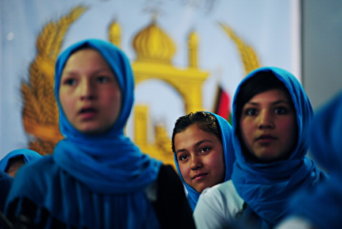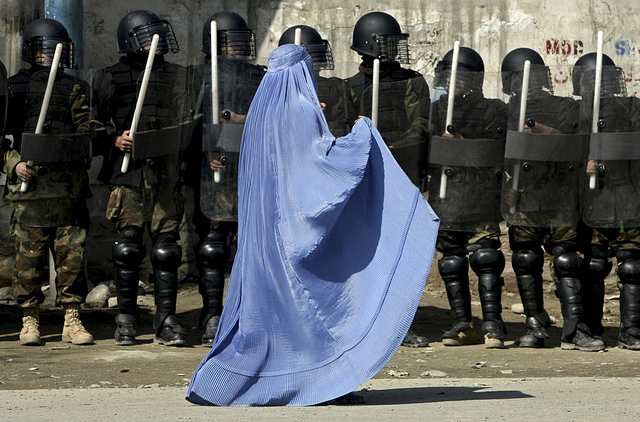- About
- Topics
- Picks
- Audio
- Story
- In-Depth
- Opinion
- News
- Donate
- Signup for our newsletterOur Editors' Best Picks.Send
Read, Debate: Engage.
The power-sharing tussle among the men dominates the vague Afghan peace process while women – the most vulnerable segment of the war-hit society – remain marginalised on the sidelines.
Away from the war theatre, where most men have been engaged for ages, Afghan women are left to struggle for even longer with the devastating consequences during and after the spell of countless wars. The local media is still receiving heart-breaking visuals of the armed men – often presenting them as moral police – lashing women in public on the directives of their kangaroo courts over shady allegations, mostly levelled by other men.
Among the warring factions, those linked to governing forces do have a nominal symbolic representation of women on the negotiation table, and are pledging to safeguard the life and liberty of women. But on the other side, the Taliban, are in clear contrast, but with some minimal signs of improvement from their previous stance while in rule during the late 1990s.
The fact of the matter remains the same. Without a firm guarantee to the Afghan women that the country would not be dragged back to the dark days of the Taliban regime, the sustainability of the already shaky peace process is profoundly doubtful.
As per conservative official estimates by the country’s Ministry of Labour, Social Affairs, Martyrs and Disabled, there are more than 500,000 widows in Afghanistan, most of whom are war widows. Of these, 70,000 are their family's breadwinners, who need to go out of their home in search of work, an act which was completely banned during the Taliban rule.
These widows are some of the most vulnerable citizens in Afghanistan. They suffer all sorts of violence and discrimination in the men-dominated conservative country.
At the ongoing rounds of talks over a proposed peace process among the men in charge of affairs, the rights of women for any perceived future need to be presented and defended in line with the blunt principle of equality.
Acknowledging this fundamental fact rather than wrangling over this and that right would make life much easier for Afghan women. This would mean equal access to public services – such as education, health and justice – which are vital to the fulfilment of women’s human rights.

